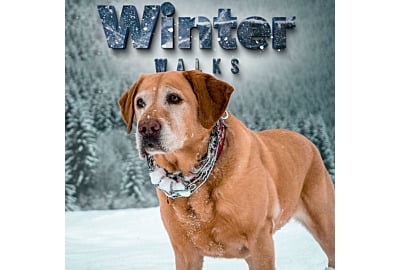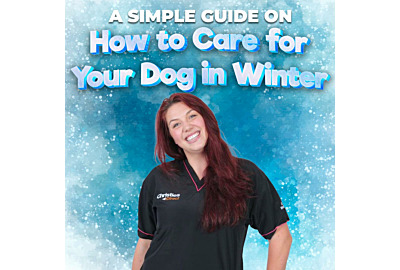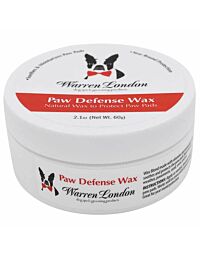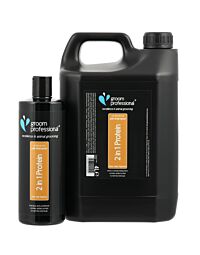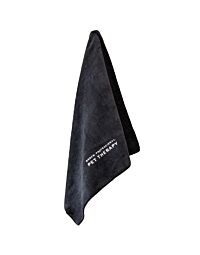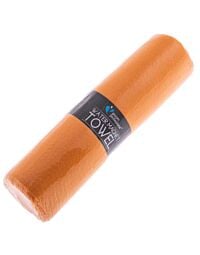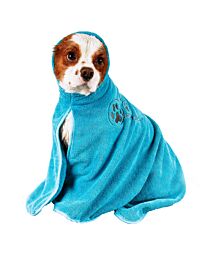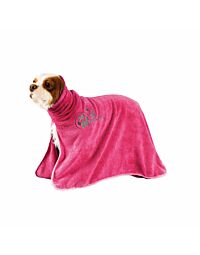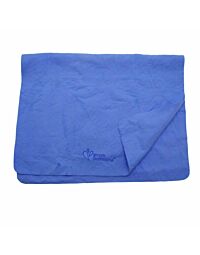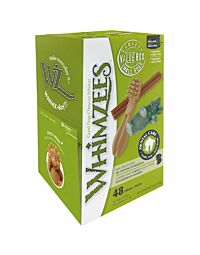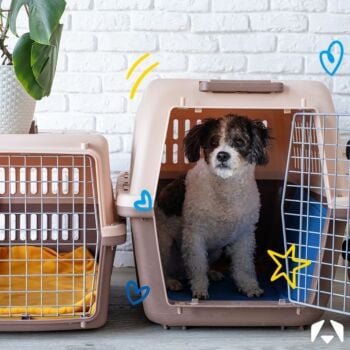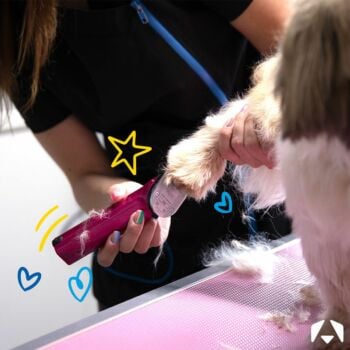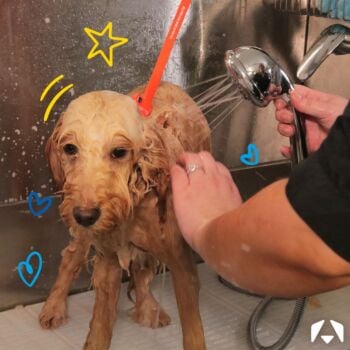
Now the clocks have changed and is winter fast approaching it's important to consider the changing needs of your dog. As the cold weather sets in, just like us, your dogs may want to take things a little easier than the summer months.
1. Check Paws Regularly
Those beautiful winter walks may be picturesque and Instagram worthy but they can leave your precious pooch with wet paws and the possibility of ice between their toes, which can form ice balls and become painful.
Make sure you dry paws well after each walk, checking between their toes and removing any objects they may have picked up while out, such as salt and grit.
If your dog has long hair, it may also be useful to trim the hair between its toes to stop it matting and make checking them easier.
Adding an additional barrier to their tootsies can help act as a defence to the winter weather. Consider protective boots or a simple Defence Wax which will soothe and protect paw pads against the elements.
2. Keep Warm
When temperatures drop most dogs, especially those that are generally fit and healthy will be able to regulate their body temperature. Their winter coat will play a key role, meaning it is essential to pay careful attention to grooming, keeping your dogs' pride and joy in top condition. Groom Professional 2 in 1 Shampoo will keep those locks shining in the winter sun, with a coat that will have your darling dog feeling like they have their own inbuilt hot water bottle!
If your dog isn't the spring chicken he used to be and is closer to collecting his bus pass, it might be time to give them some extra help in the winter months to keep warm. The detachable faux fur liner in this Barbour Dogs Wax Cost makes it perfect for both autumn and winter. Likewise, short-haired dogs and those with health issues may also need additional help to keep warm when out in the colder months.
3. Warm Bed
We all want to curl up, pull the duvet over our head and hibernate when the temperature drops and your dog is no different. To avoid them getting a chill during the cold evenings make sure they have a bed that is comfortable and enables them to keep warm.
If you are in search of some affordable luxury for your dog, look no further than the Slumber Pet Thermapet Burrow Bed which utilises the same technology NASA uses in space blankets. It encourages passive reflective heat transfer, keeping pets warm by reflecting their own body heat. If it's good enough for NASA, eh?
4. Keep Dry
To avoid animals catching a chill make sure to dry them well after a bath or if they have been out in the rain. Towel drying dogs with short hair should be effective, however, those with longer hair may need the assistance of a hairdryer, if they can manage the noise.
Once your dog is dry, make sure their bed is dry and in a draught free location.

5. Regular Check-Ups
Making regular trips to the vet throughout the year will help your dog stay fit and healthy. If your dog is suffering from symptoms that might be difficult to spot for the untrained eye, your vet will pick up on these and can prescribe the best course of action to get your beloved pet back to full strength.
Winter related illnesses to look out for include hypothermia, frostbite, poisoning, the sniffles and kennel cough.
6. Avoid Leaving in the Car
Just like during the summer, leaving your dog in the car alone for prolonged periods of time can have devastating repercussions. When temperatures drop quickly, windows can become frozen leaving your helpless dog open to hypothermia.

7. Poisoning
There are numerous things to be aware of over the winter months that can be fatal for man's best friend.
- Antifreeze - used throughout the winter to de-ice car windows. The sweet taste is very enticing, but it is very toxic for pets and can have fatal consequences. Ensure you clean up any spills when applying antifreeze to your car and keep it out of reach.
- Salt and grit - other toxic substances used in the winter to keep roads and paths safe. It can also irritate your pets' paws. Apply defence wax to help prevent irritation and wipe paws clean to stop them from licking the salt, which can be toxic.
- Plants - festive plants such as holly, ivy and poinsettia are all toxic to pets if they are consumed. If possible, keep them out of reach, or use artificial plants.
- Food - it is tempting to want to include your pets in family parties by giving them treats. But things like raisins, chocolate and alcohol are poisonous for pets. Go for pet-specific food and treats that are designed specifically for their needs.
8. Microchipping
Throughout the winter months, we have Halloween, Guy Fawkes and New Year's Eve which are traditionally celebrated with fireworks. As we covered in our last blog, fireworks can spook animals and lead to them running off.
Pets that are microchipped have a higher chance of being reunited with their owners if accurate contact details are registered. It's a simple, free and painless procedure.
A healthy pet is a happy pet!




